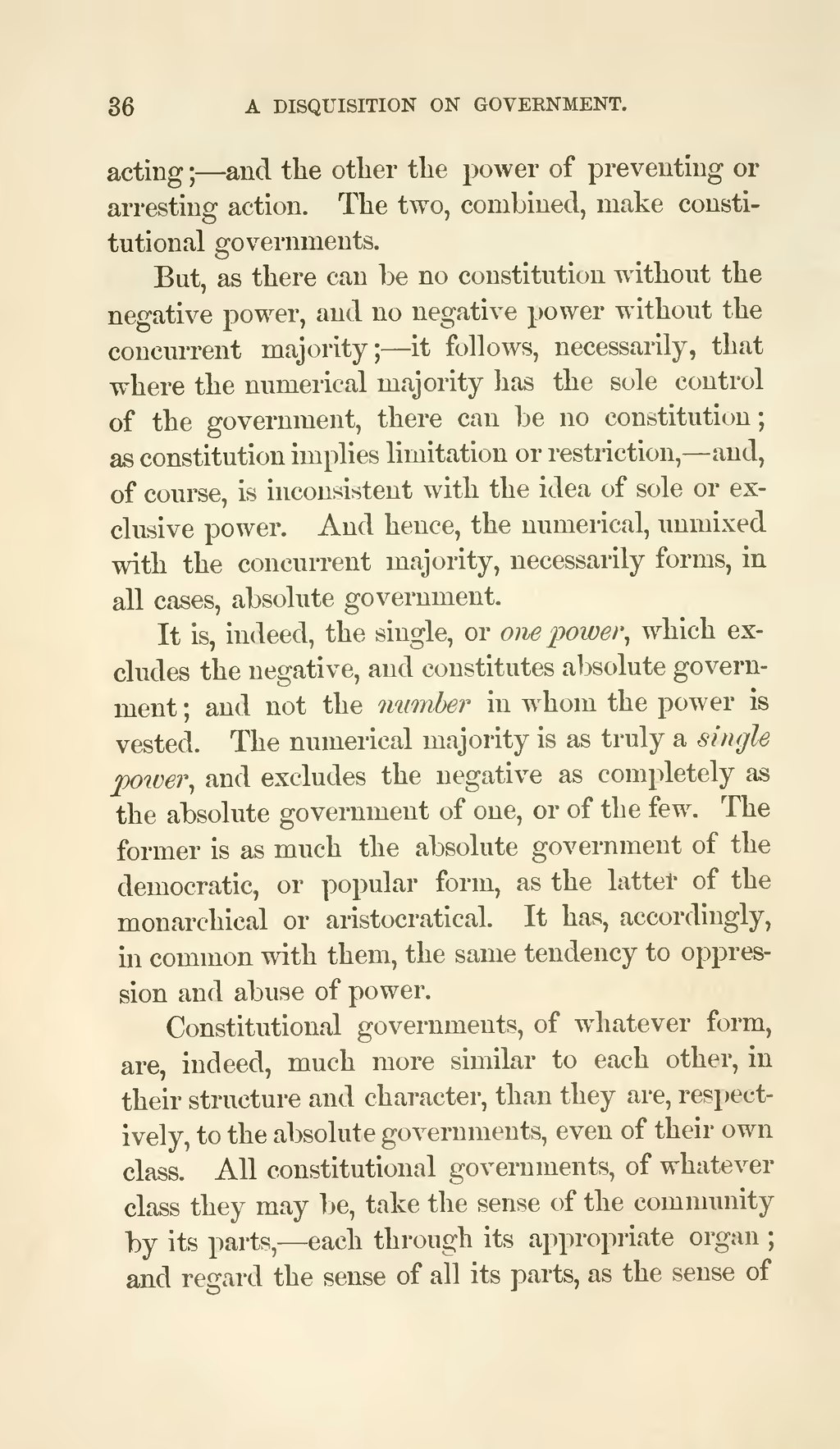acting — and the other the power of preventing or arresting action. The two, combined, make constitutional governments.
But, as there can be no constitution without the negative power, and no negative power without the concurrent majority — it follows, necessarily, that where the numerical majority has the sole control of the government, there can be no constitution; as constitution implies limitation or restriction — and, of course, is inconsistent with the idea of sole or exclusive power. And hence, the numerical, unmixed with the concurrent majority, necessarily forms, in all cases, absolute government.
It is, indeed, the single, or one power, which excludes the negative, and constitutes absolute government; and not the number in whom the power is vested. The numerical majority is as truly a single power, and excludes the negative as completely as the absolute government of one, or of the few. The former is as much the absolute government of the democratic, or popular form, as the latter of the monarchical or aristocratical. It has, accordingly, in common with them, the same tendency to oppression and abuse of power.
Constitutional governments, of whatever form, are, indeed, much more similar to each other, in their structure and character, than they are, respectively, to the absolute governments, even of their own class. All constitutional governments, of whatever class they may be, take the sense of the community by its parts — each through its appropriate organ; and regard the sense of all its parts, as the sense of the whole.
